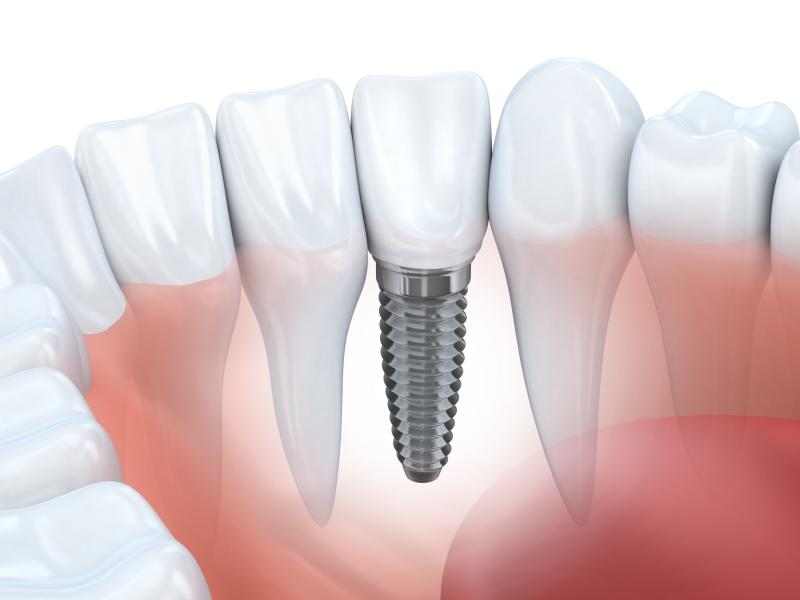3 Types Of Dental Implants And Their Benefits

Losing a tooth can be a traumatic experience. It may have a detrimental impact on daily activities such as eating and communicating. Any dentist will advise you that replacing lost teeth should be done as soon as possible.
There are several methods to replace a missing tooth, one of which is dental implant surgery. Dental implants are metal screws inserted under the gums into the jawbones. Once these screws are inserted, the dentist may attach a substitute tooth on them.
The manner in which dental implant surgery is done is determined by some considerations, including the following:
- Type of Implant to be Used
- State of the Patient's Jawbone
Types of Dental Implants
Depending on the diagnosis, your dentist may recommend either of these dental implants:
- Endosteal Implants: These implants are surgically embedded directly through the jawbone. A second procedure is required to insert a post to the initial implant after the underlying gum tissue has recovered. After that, a fake tooth is placed on the post. This tooth may be attached individually or by a bridge.
- Subperiosteal Implants: This implant is made up of a metal frame that's fixed to the jawbone under the gums. The frame solidifies to the jawbone when the gums have recovered. The gums are protruded by posts that are attached to the frame. Following that, false teeth are fixed to the posts in an identical manner.
- Zygomatic Implant: This is the most complicated operation. Hence, it is very uncommon. In the procedure, the implant is positioned in the cheekbone instead of the jawbone. This surgery is only used in serious situations where the jawbone is too fragile for the first two methods.
Benefits of Dental Implants
Dental implants have advantages that other tooth restoration options do not. The following are the major advantages of this revolutionary alternative:
- Prevents Bone Loss
When teeth are lost, bone density in the jaw is usually lost as well. To retain bone density, the jawbone requires the sensation that happens when the teeth are linked to each other. Dental implants restore sensation to the jawbone, thus preventing bone loss.
- Prevents Changes In Facial Shape
Your teeth contribute to the stability of your facial structure. When teeth are missing, the stability is lost, which gradually results in a shift in the appearance of your face. Dental implants have the same level of support as natural teeth, keeping the face from deforming.
- Natural-Looking Teeth
Dental implants are available in an array of styles. Your dentist will team up with you to develop implants that are the same color as your natural teeth. Your artificial teeth would fit seamlessly in the void. Nobody would be able to tell the difference.
- Facilitates Natural Speech
Certain teeth replacement choices, such as dentures, can impair your capability to pronounce words accurately. Additionally, missing teeth may affect your speech. Dental implants allow you to speak normally and effortlessly because they work identically to natural teeth.
- No Worries About Cavities
Although artificial teeth must also be maintained to avoid bacteria from accumulating, the substance used to create dental implants is impervious to decay. With dental implants, you'll never have to be concerned with cavities again.

- Easy Cleaning
Dental implants may not necessitate the purchase of any special cleaning or treatment items. There is no requirement for cups, cleaning tablets, glue, or specialized floss. You simply brush and floss your teeth as you do with your real teeth. This way you can properly maintain your oral hygiene.
- Keeps Your Smile Straight
A missing tooth may cause misalignment in the mouth. Dental implants bridge the difference, helping you to keep your smile straight and even.
- Avoid Embarrassments
Patients who wear dentures may be self-conscious about talking, smiling, or eating in public because dentures can visibly move or fall off. Dental implants are permanently attached to your teeth and will never cause you any embarrassment.
- Regains Bite Capacity
Dental implants, which are secured in your jaw, enable you to chew with roughly the same strength as your natural teeth.
- Permanent Solution
While most teeth restoration choices may require occasional maintenance or replacement, dental implants are intended to last a lifetime.
- Better Oral Health
Dental implants don't necessitate the reduction of adjacent teeth, as would a tooth-supported bridge. Since no teeth next to the implant are changed to accommodate it, most of your natural teeth remain preserved, thus enhancing your long-term dental health.
Summary
Dental implants are titanium posts that are surgically inserted in the jawbone to cover lost teeth. Implants provide a strong rate of efficacy which may have significant long-term benefits. Whether you are losing teeth as a result of an accident, gum disorder, or aging, consult with your dentist about dental implant options or tooth replacement choices.
More to Read:
Previous Posts:





